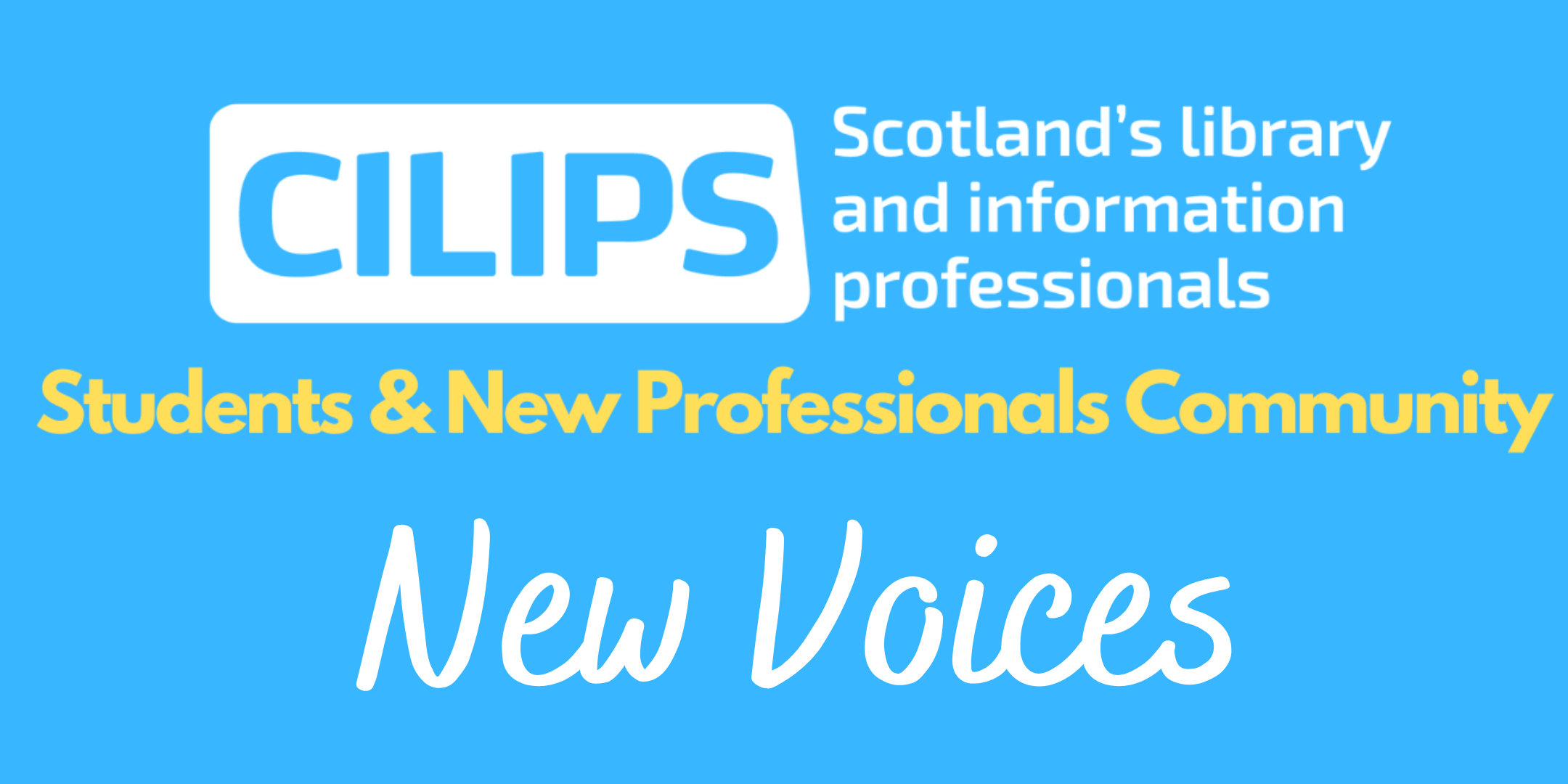New Voices RGU Student Series 2024 – Katherine Ham
Category: Blog, New Voices, New Voices, RGU Student Series 2024

In the 2024 Student Series for the New Voices blog, CILIPS Students & New Professionals Community will be sharing the views of Robert Gordon University students from the MSc in Information and Library Studies.
With special thanks to Dr Konstantina Martzoukou, Teaching Excellence Fellow and Associate Professor, for organising these thought-provoking contributions.
Today’s blog post author is Katherine Ham, who works as a Teacher-Librarian at the American School Dhahran in Saudi Arabia. Katherine balances her work and her studies with her “real” life: being a wife and a mom. She is also the 2024 CILIPS placement student from RGU, researching recommendations for the future of sector advocacy in Scotland.
Librarians to Lead the Playful Vanguard
With the speed of change and development of Generative Artificial Intelligence (GenAI), like ChatGPT and Google Bard, the only sensible thing for schools to do is put the librarian at the head of the charge. When asked what the role of librarians should be in supporting information literacy skills with regards to GenAI, ChatGPT itself identifies the need for librarians to ’empower individuals to navigate the complex landscape of AI-generated content responsibly and effectively’. GenAI is so new that standards, policies and procedures in education have a lot of catching up to do.
Many writers are posing a list of questions for educators to consider. Rubin et al. (2023, no pagination) offer this list: “How do we determine the limits of this technology in education? Who is responsible for establishing ethical guidelines to ensure its effective and safe use? And, as teachers work to incorporate ChatGPT into their lessons, how can they simultaneously address the challenges it presents?” All the literature seems to agree that we are at a precipice, but few writers are offering answers about what exactly should happen next.
What is missing in the discussion is play. GenAI is so new that people aren’t really even sure what it can do yet. Information Professionals need to get in there and get their metaphorical hands dirty. Arguments about policy and procedure and ethics need to happen, but without knowing how it could be used, it’s difficult to think about how it should be used. Rath (2023, p. 302) noted that information literacy needed to shift ‘from being seen as a set of autonomous skills to a set of social practices’. Certainly, GenAI defies all the discrete skills that may have previously been set out as digital literacy. The discussion needs to be centred on the social implications, so bringing groups together to play with the new technology is an ideal next step. It’s about considering how GenAI works in an educational setting, but also about what payoffs within that community will drive its use. As people discuss and discover how GenAI can be used, the boundaries of ethical and appropriate use will become clearer. Librarians are well-suited to lead this play revolution, as they have long been the torch-bearers for research skills and critical literacy. In this epoch of ill-funded institutions and over-stressed teachers, librarians are in a position to take a leadership role. As Rubin et al (2023, no pagination) note, educators ‘who involve their students in co-exploration and co-creation of guidelines of use can navigate these murky waters together, rather than attempting to fight fires throughout the year’. Rarely has there been a more succinct description of modern education than murky waters and putting out fires. Roberts (2021, p. 90) notes that ‘librarians are often already part of these existing CoPs [Communities of Practice] within students’ networks and that both librarians and students may participate as learners and contributors to the community’, highlighting exactly why librarians are fit to be at the forefront of the GenAI exploratory forces. They are already embedded in the digital-critical-information literacy battle.
GenAI may be just the solution that is needed; perhaps it will be exactly the tool teachers need to bring their job back into the realm of the possible. As my colleague, Raazia Ali (2023, no pagination) suggests, perhaps GenAI will be the tool that allows teachers to ‘spend their time on other tasks like personal wellbeing and mastering the craft of teaching, while this assistant is at their service creating some of those repetitive and laborious tasks’. What exactly GenAI will do for the educational community won’t become clear until we’ve got more experience. Let’s put librarians in the vanguard and see what these literacy warriors can do to bring this new adversary to heel.
References
Ali, R., 2023. AI Assistants: A Workflow for Educators. [online]. California: A Medium Corporation. Available from: https://medium.com/nerd-for-tech/chat-gpt-bard-a-workflow-for-educators-a2d068ddc39c [Accessed 16 November 2023].
CHATGPT, 2023. ChatGPT response to Katherine Ham. 16 November. CHATGPT, 2023. Teach Critical Thinking Skills. ChatGPT response to Katherine Ham. Available from: https://chat.openai.com/c/7228564f-6f36-441d-99a9-38d0dfa77150. [Accessed 28 November 2023].
Rath, L., 2023. Information Literacy is a Social Practice: A Threshold Concept for Academic Instruction Librarians. Journal of Education for Library & Information Science, 64(3), pp. 294-310.
Roberts, L., 2021. This is Just What We Do: PhD Students on Becoming Scholars in a Community of Practice. Communications in Information Literacy, 15(1), pp. 75-94.
Rubin, J. et al., 2023. Thoughtful and Ethical Approaches to Using AI in Schools. [online]. Seattle: Foundry10.org. Available from: https://medium.com/the-foundry10-voice/thoughtful-and-ethical-approaches-to-using-ai-in-schools-7c3679 7f2c68 [Accessed 17 November 2023].
